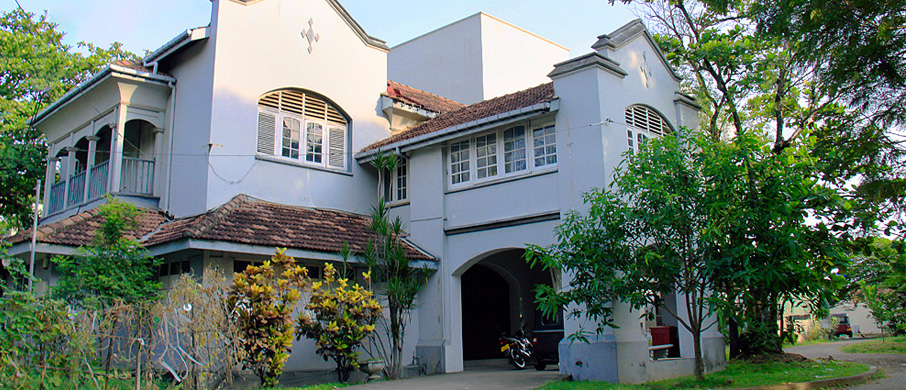- Conducting of medical examinations for new entrants
- Administering of vaccinations on a needs basis
- Medical counseling
- Laboratory testing
- Maintenance of the university premises including the halls of residence
- Examination of all personnel handling food items
In addition to these services the university Health Centres also issue medical certificates to staff and students on request, recommend special medical leave for students when the need arises, facilitate Specialist advice and inpatient care on referral at the National Hospital of Sri Lanka, conduct special medical examinations for scholarships for the staff, conduct routine medical examinations of all new recruits and for the purpose of extending the services of the staff, issue medical certificates for driving licenses to university staff and students, and supply available medicines on a long term basis for chronic illnesses to both students and members of the staff of the university.
FREE INSURANCE FACILITY
A free health insurance scheme is available to all staff members of the University of Colombo. The cost of the scheme is borne by the income generated through external services.
The University of Colombo has two Health Centres. The main Health Centre, serving the majority of faculties, units, and centers of the university is located in “Samson’s Bungalow” on Reid Avenue and has been serving the university for the past two decades or more. A second Health Centre functions at the Faculty of Medicine at Kinsey Road for the benefit of the Medical Faculty students and staff. The University Health Service was organized to help the students of the University to lead an active life free from disease. Initially, all registered University students were entitled to free consultations and laboratory services and the service was set up solely for the benefit of the student body. It was believed that timely treatment and care of even mild ailments could prevent the occurrence of more serious diseases, minimize the rate of absenteeism from classes and control the spread of infection to others. A number of services were provided by the medical center initially. Medical examination of all new students was an essential part of the registration procedure. Enrolment in the university was not valid until such an examination has been completed. Further, annual recheck examinations were compulsory. Mass radiography and Mantoux testing were compulsory. B.C.G. vaccination though not compulsory was arranged for Mantoux negative cases. Immunization against smallpox and typhoid was arranged at the university clinics. These were optional but students were advised to have them done at the earliest opportunity. Health education in preventive medicine through lectures, demonstrations and propaganda films was organized by the University Health Service.
Clinics were held at the University Health Service where the University Medical Officer (UMO) was available for consultation. There were facilities for laboratory services and any special examinations were done by arrangements with the Medical Research Institute, Colombo. Students who were too ill to attend the clinics were seen at the Halls of Residence and were advised hospitalization when necessary. Maintenance of Environmental sanitation was also done by the University Health Service. Preventive measures to safeguard the health of the University community were carried out by the University Health Inspector under the direction of the UMO. The activities of the preventive service consisted of public health administration, statistics, epidemiology, general sanitation, food sanitation, and health education. Under the preventive services, in addition to the organization of immunization programs and the notification of communicable diseases, a “food handler’s examination” was also carried out by the University Health Service. In this examination, any person or persons directly or indirectly in charge of preparation, serving or otherwise disposing of articles of food were required to be medically examined on the first appointment and every year thereafter for evidence of carrier-borne diseases. No such person was given employment unless he or she was certified as free from such diseases. Research work in conjunction with the Departments of the Faculty of Medicine was also conducted by the University Health Service.
- Chief Medical Officer
- Senior Medical Officer
- Medical Officers – 2
- Dental Surgeon
- Nursing Staff
- Pharmacists
- Technical Officers
- Health Inspector
- Health and Sanitary Labourers
